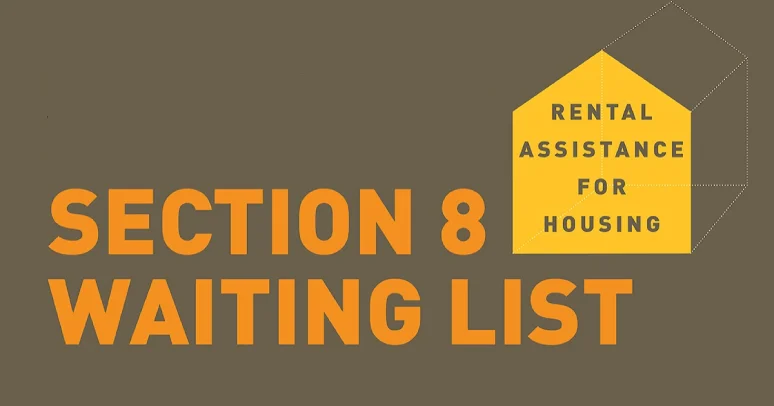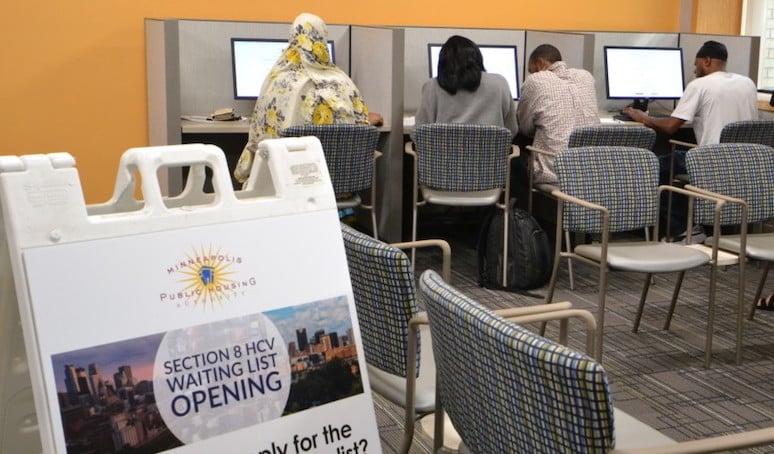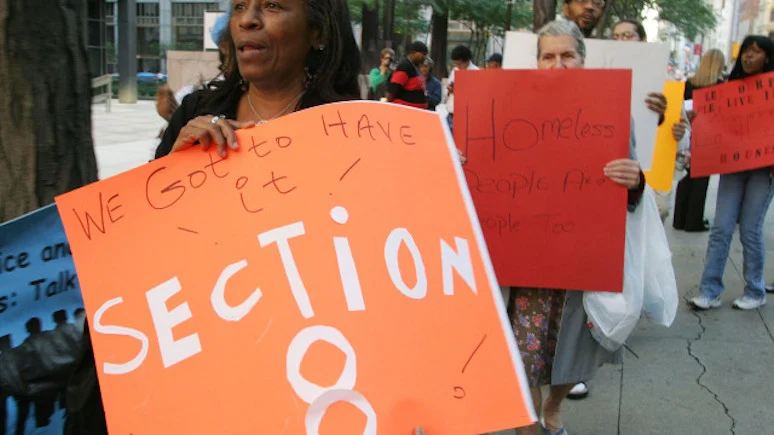The Housing Choice Voucher program, also named Section 8, paves the way for millions of Americans to obtain safe, clean, and affordable housing. However, many households have to be registered on the waiting list for a lengthy period due to the limited house supply. Despite this, some eligible applicants may be given priority. So how to get on the top of the list? Here're the key facts you'd better know beforehand.
What's the waiting list about?
To apply for Section 8 housing assistance, you must first submit a preliminary application that includes basic information about your household. Your Public Housing Authority (PHA) will then evaluate your eligibility for the program based on the information you provide. If you are found to be eligible, you may receive a housing choice voucher when housing becomes available.
However, the number of available Section 8 housing units is insufficient to serve all applicants, and many individuals and families end up on the waiting list until a suitable housing option becomes available. The duration of the waitlist varies depending on various factors, and certain household characteristics may be given priority over others. Some individuals may remain on PHA Section 8 waiting lists for years before receiving their housing choice voucher.
Volunteers who assist with the process often express frustration due to the high number of applicants who are turned away. According to a recent report, only 25% of Section 8 applicants are able to receive the necessary housing assistance.

7 Priority Criteria To Know Before Application
Therefore, it is critical to familiarize yourself with some of the relevant criteria PHAs use in assigning priority. This information can be useful before you even lodge your Section 8 application, as they can help you ask more on-target questions when dealing with the local authority and leverage your household conditions in getting assistance faster.
Low income - The initial steps of the Section 8 housing choice voucher program application process involve verifying your household's income and family status. This is a crucial eligibility requirement that housing authorities typically consider first when reviewing applications.
- extremely low: approximately 30% of the median income
- very low: about 50% of the median income
- low income: 80% of the median income
When reviewing applications, PHAs prioritize housing options for extremely low-income families first, followed by very low-income and low-income households. In fact, about 75% of all applications accepted by PHAs represent extremely low-income families. If your household falls into this category, it's definitely worth discussing with your PHA what it means for your priority status in the program.
Disability - Applicants with disabilities or medical needs usually receive priority on the Section 8 waiting list. Such cases are taken seriously especially when the current living arrangements are not suitable for accommodating the disabled member's needs or when their current housing is exacerbating a medical condition. For example, an applicant who requests to move to a wheelchair-accessible apartment from a non-accessible one may be given priority.
To be eligible for priority consideration, you will need to provide medical documentation that demonstrates the existence of the disability or medical condition and how the current living conditions are negatively affecting the disabled member's health.
Homelessness - PHAs often have special concerns for homeless individuals and families as they are regarded as an extremely vulnerable population. Consequently, it is very common for homeless applicants to be moved to the top of the Section 8 waitlist with priority.
It is important to confirm with your PHA whether they prioritize homeless applicants and what their definition of homelessness entails. For example, some PHAs may not consider applicants as homeless if they are currently residing with relatives or friends.
Old Age - Another group considered highly vulnerable in the United States are the elderly. By the same token, PHAs may give priority to households led by senior U.S. citizens – defined as individuals aged 62 or older. The Department of Housing and Urban Development (HUD) places significant emphasis on ensuring that senior citizens have access to secure, hygienic, and reasonably priced housing.
Domestic Violence - PHAs are required to establish procedures to give preference to households that include individuals or families who are victims of domestic violence, dating violence, or stalking, as long as the abuse is verified by a qualified third party. This is in accordance with the Violence Against Women Act (VAWA), which provides protections for victims of domestic violence and helps them access safe and stable housing.
Under VAWA, PHAs are required to provide emergency transfer options for victims who fear for their safety, and they must keep the victim's information confidential. In addition, PHAs give priority to victims of domestic violence when processing applications for housing assistance.
Veteran - Assistance in finding secure and reasonably priced housing is a significant need for many veterans after serving in the military. Recognizing this need, HUD places great importance on supporting U.S. veterans in their search for appropriate housing as they transition into civilian life. If you or anyone in your household has served in the armed forces, it will be very helpful to include this information and provide military documentation in your application materials. To qualify for priority status on the waiting list, the military member should normally have received an honorable discharge.
Families With Children - Families with children are often considered another vulnerable population and may be given priority in seeking housing assistance. This is because children require stable housing in order to thrive and succeed, and homelessness or unstable housing can have a negative impact on their development and well-being.
Nonetheless, please note that specific policies and priorities may vary depending on the local PHA's guidelines and the availability of resources. It is therefore important to discuss your eligibility for priority with your local PHA.

What to do while on the waitlist?
While it's called a "waiting" list, you don't have to sit idly by during the application process. There are ways to remain an active participant.
First, keep meticulous records of all correspondence with your PHA, including notes from any phone calls. Mistakes can happen, and having a paper trail could be crucial in the event of any misunderstandings or errors.
Promptly respond to communications from HUD or your PHA to show your continued interest in the Section 8 program.
Be sure to notify your local housing authority of any changes in household composition or income that could impact your eligibility for the program.
Additionally, you can apply with multiple PHAs at the same time to increase your chances of being awarded a housing choice voucher.
Joining online Section 8 support and discussion groups could also be helpful. Thousands of individuals are in similar situations, and connecting with them could provide useful information and a sense of community.
Above all, patience is key while on a Section 8 waiting list. It could be a lengthy wait, but it's important not to give up. Stay engaged, ask questions, and advocate for yourself and your household.

Before You Go
According to official statistics as recent as 2018, more than five million Americans received some level of rental assistance from Section 8 housing vouchers. The program is extensive and has a significant impact on the lives of those who are approved for it, providing them with safe, clean, and affordable housing.
Although being placed on a waiting list can be frustrating, households that fall under any of the special categories mentioned above may be eligible for priority consideration. If you believe your household meets any of these conditions, it is definitely worthwhile to contact your local public housing authority for more information on how your case may be considered.
Was this page helpful? Give us a thumbs up!












